London Underground: More than 36,000 shifts lost to Tube strikes
- Published
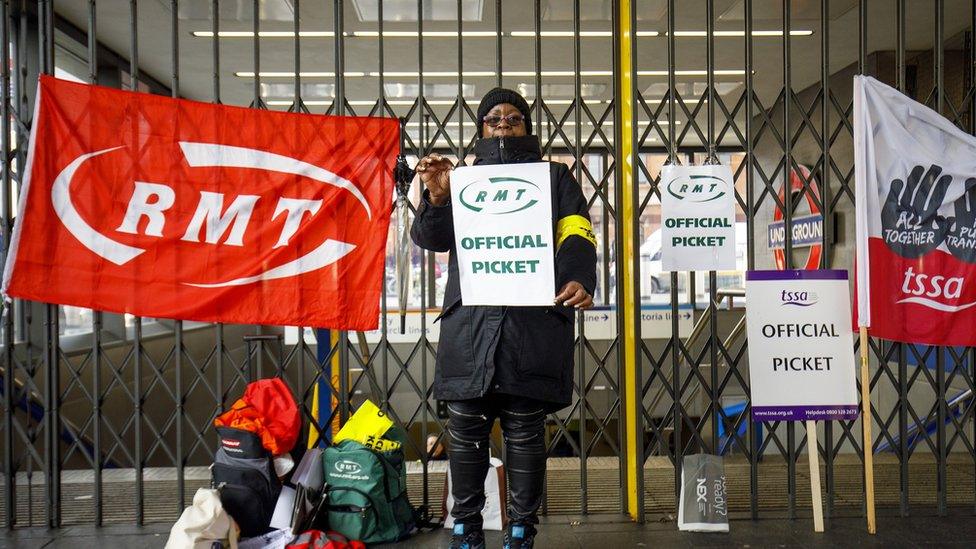
The RMT Union represents 10,000 workers on the London Underground
Trade unions suspended a threat of strike action on the London Underground last week after successful talks with Transport for London (TfL). There has not been a strike on the Tube during 2019 but have industrial relations improved since Sadiq Khan took over as Mayor of London from Boris Johnson three years ago?
Figures obtained by the BBC show that in the past 11 financial years, since Mr Johnson took over as mayor from Ken Livingstone, there have been more than 36,000 days lost to strike action.
The number of days lost is so high because TfL counts "one day lost for every member of staff missing" and it has led one academic to describe the London Underground as "a museum of bad industrial relations".
Various disputes over issues including ticket office closures, job cuts, new rotas, employee dismissals and the introduction of the Night Tube have resulted in 68 individual dates of strike action since April 2008.
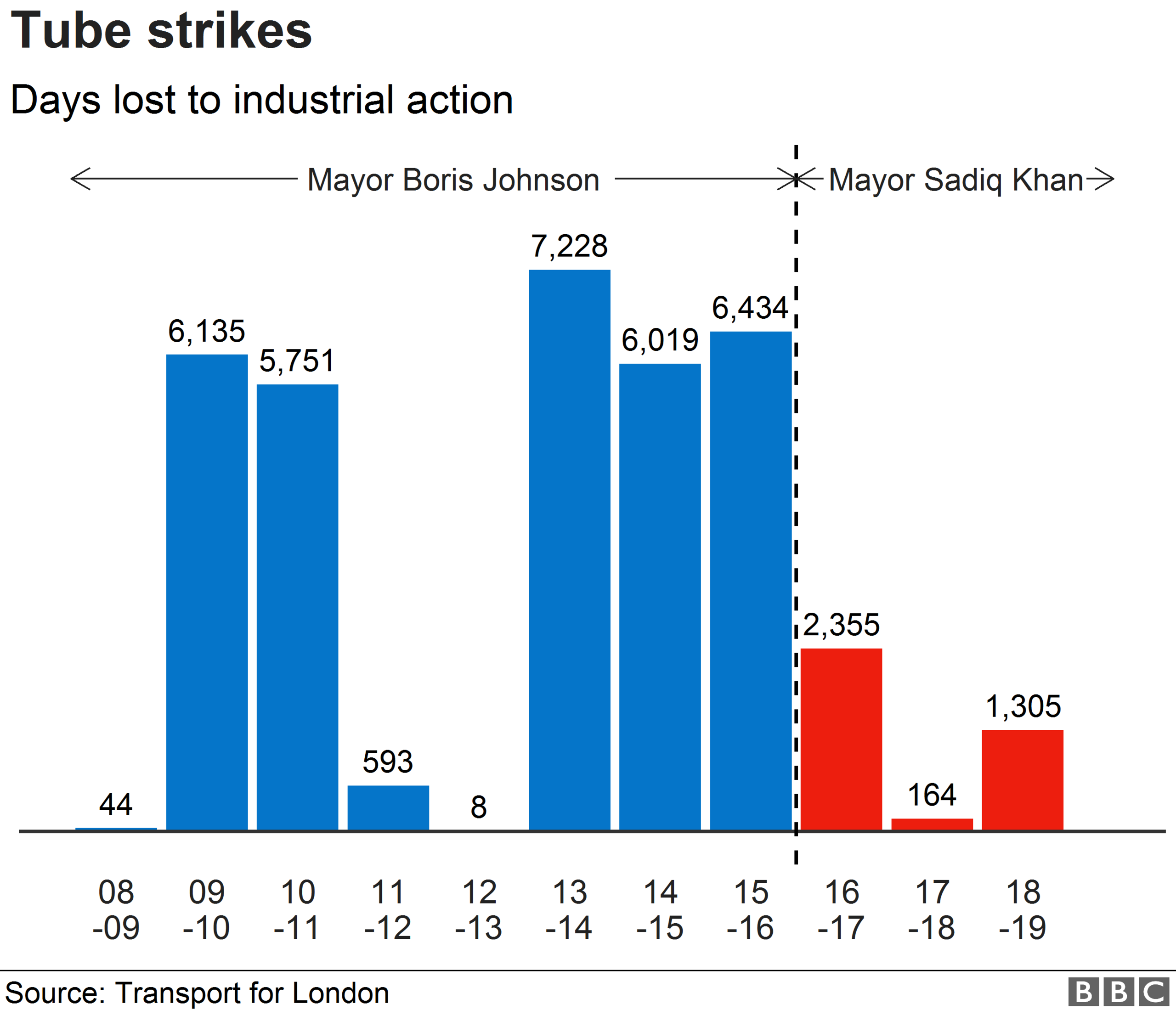
The London School of Economics's Prof Tony Travers explained these industrial rows resembled "trigger points" that each mayor would aim to avoid in order to prevent any big strikes.
"These trigger points are usually something new," he said. "These include the Night Tube, Olympics or working Boxing Day.
"Unions have long used the Underground as good leverage when trying to get better pay because of the monopoly that it serves."
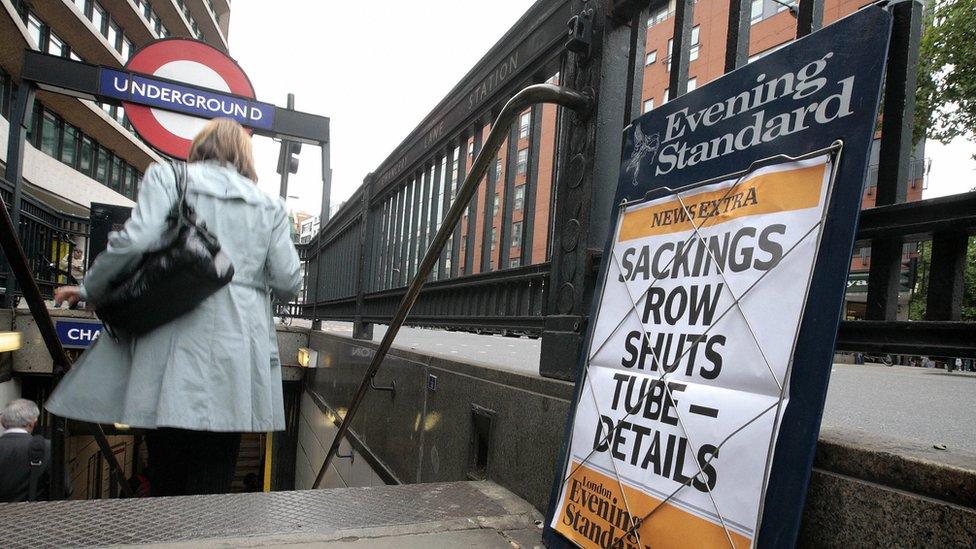
More than 7,000 days were lost to strike action over four dates in early 2014
Between April 2008 and May 2012, during Mr Johnson's first spell as Mayor of London, 12,523 shifts were lost to strike action - despite him trying to negotiate no-strike deals with the Tube unions.
Figures showed a further 19,689 working days were lost while he was mayor during his second term between May 2012 and May 2016.
In his 2016 Mayor of London election campaign Mr Khan pledged to "reduce the number of days lost to strike action, external" and he has seen 3,824 shifts lost to strike days during his time at City Hall.
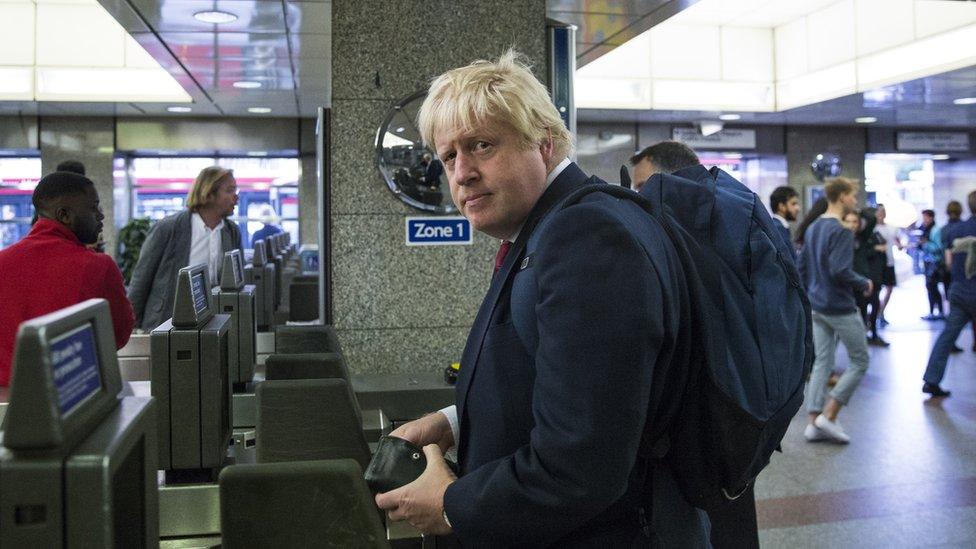
As Mayor of London Boris Johnson called for strikes to be made illegal unless 50% of staff in a workplace took part in a ballot
While there have been significantly fewer working days lost to strikes under Mr Khan, there have been 25 dates of industrial action in his three years as mayor, compared with 33 across the whole eight years Mr Johnson was in office.
"Under Sadiq there have been fewer days lost," Prof Travers said. "But the entire record for Tube strikes is particularly dire."
TfL said the effect of any strike was dependent on the nature of the dispute, the number of unions involved and where the strike had been called.
The figures included strikes that affected either the whole Tube network or just part of it.
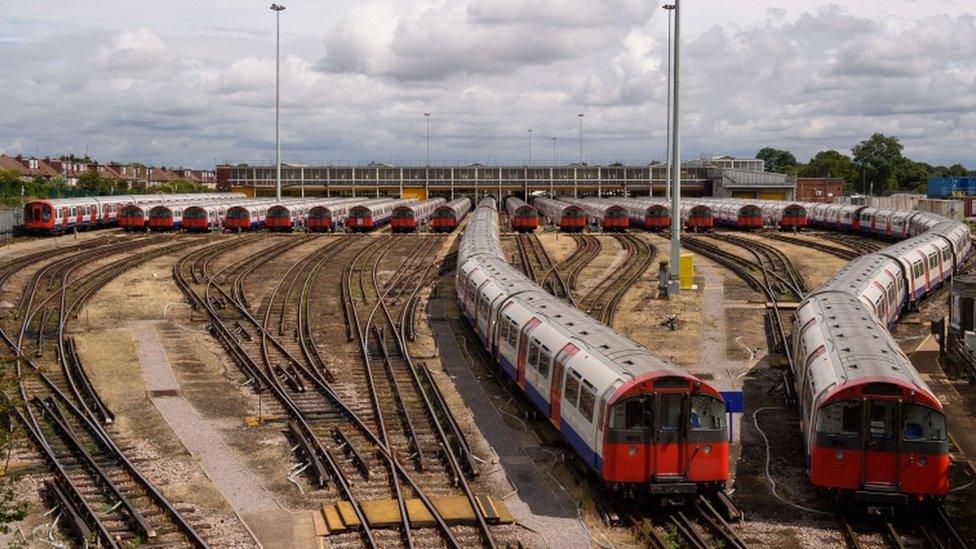
Nearly 70 periods of strike action have been taken by various unions since April 2008
A spokesman for the Mayor of London said strike action had "reduced" under Mr Khan because he "listens to the concerns of workers".
However, Conservative London Assembly member Keith Prince defended Mr Johnson's record, instead accusing Mr Khan of having a "worse strikes record (than) any of his predecessors".
According to the TfL data, strike action was predominantly taken by the RMT union, which has about 10,000 members employed on the Tube, and saw workers walk out on 34 occasions.
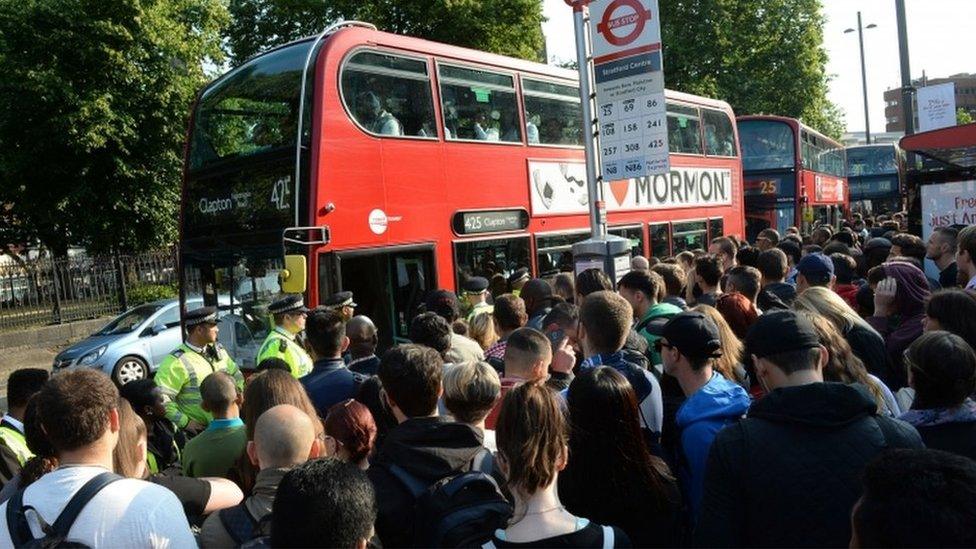
Transport for London says it deploys additional staff on strike days
Aslef, which represents 2,456 Tube drivers, took 13 dates of strike action, while Unite had eight disputes which led to industrial action.
The Transport Salaried Staffs Association (TSSA) walked out on two occasions over "employee terms and conditions".
Aslef's Finn Brennan said his union had "regular meetings between transport unions, Mr Khan and his team".
He added: "Aslef uses these meetings to highlight issues that go beyond the remit of the machinery meetings with employers and to encourage a more reasonable attitude on matters we have raised with the company."
- Published8 August 2019
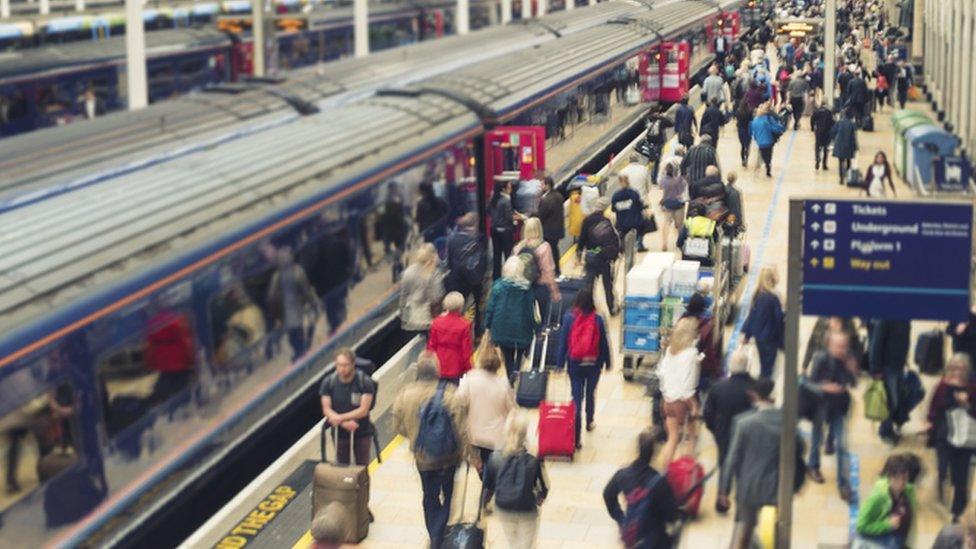
- Published5 June 2019
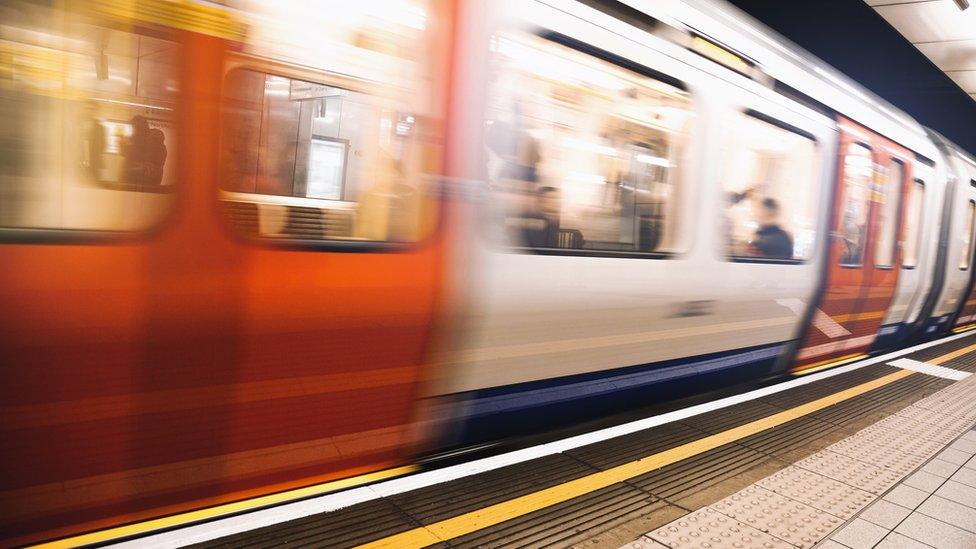
- Published14 May 2019
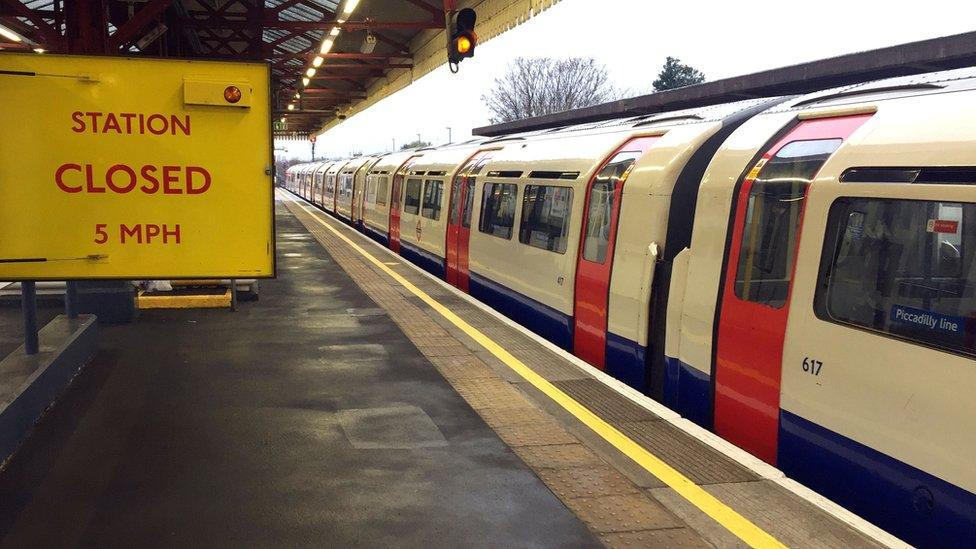
- Published27 October 2018
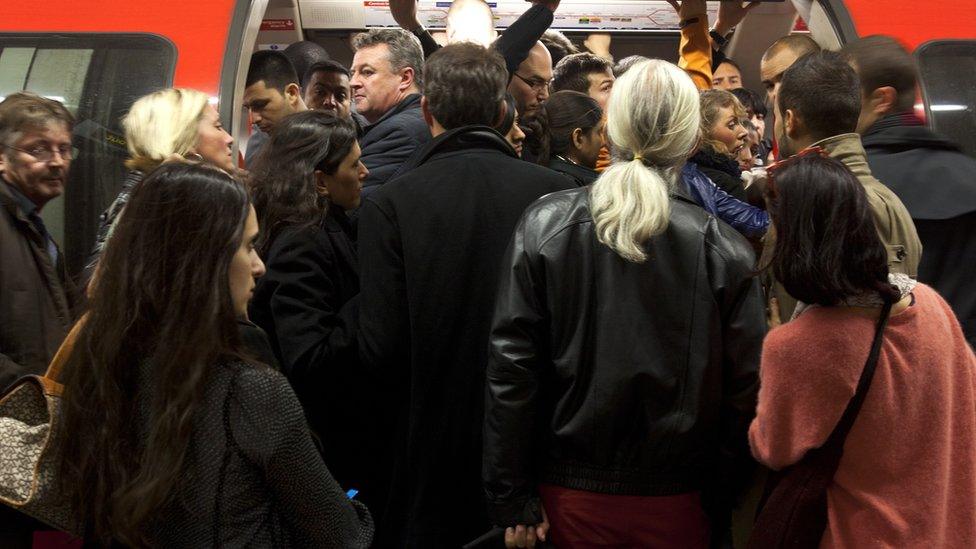
- Published3 February 2017